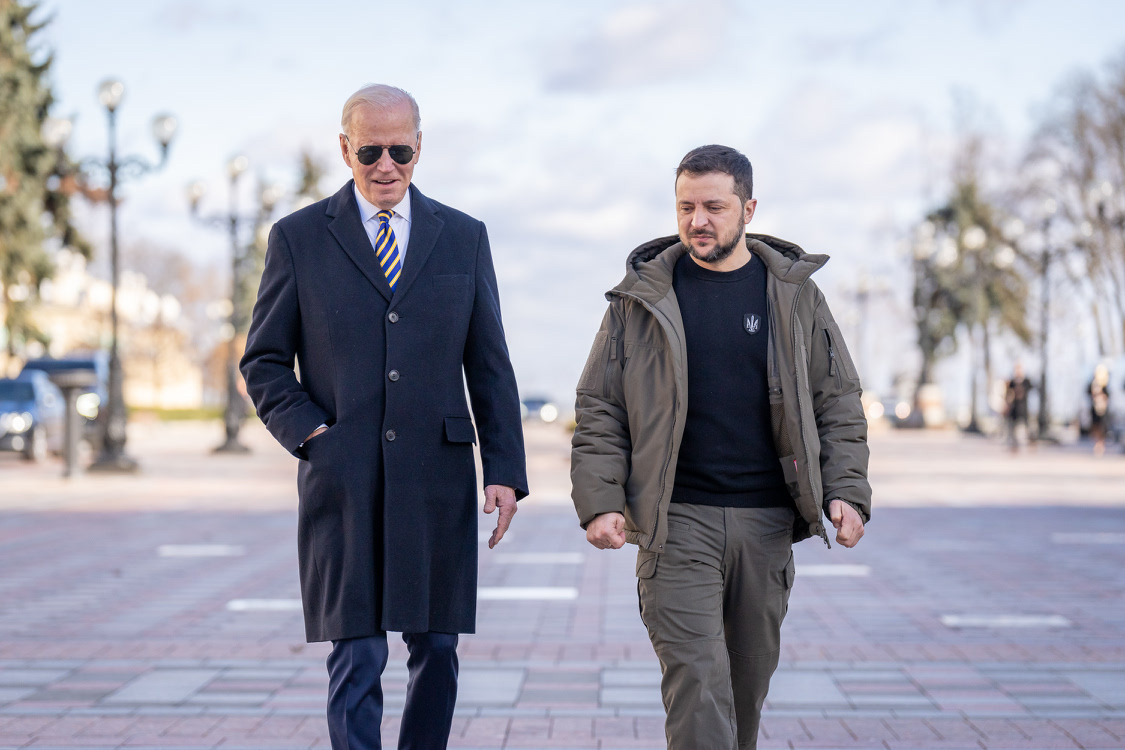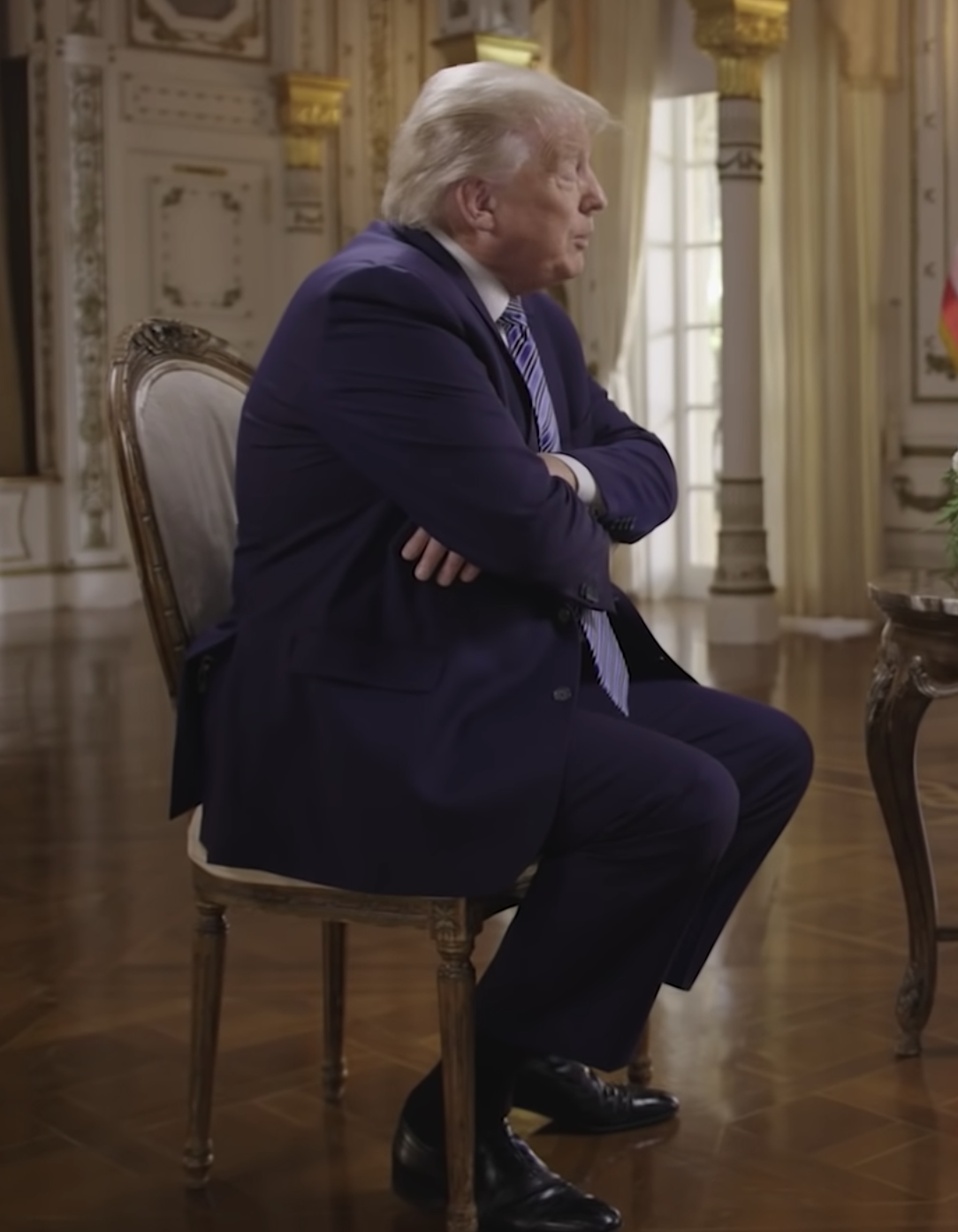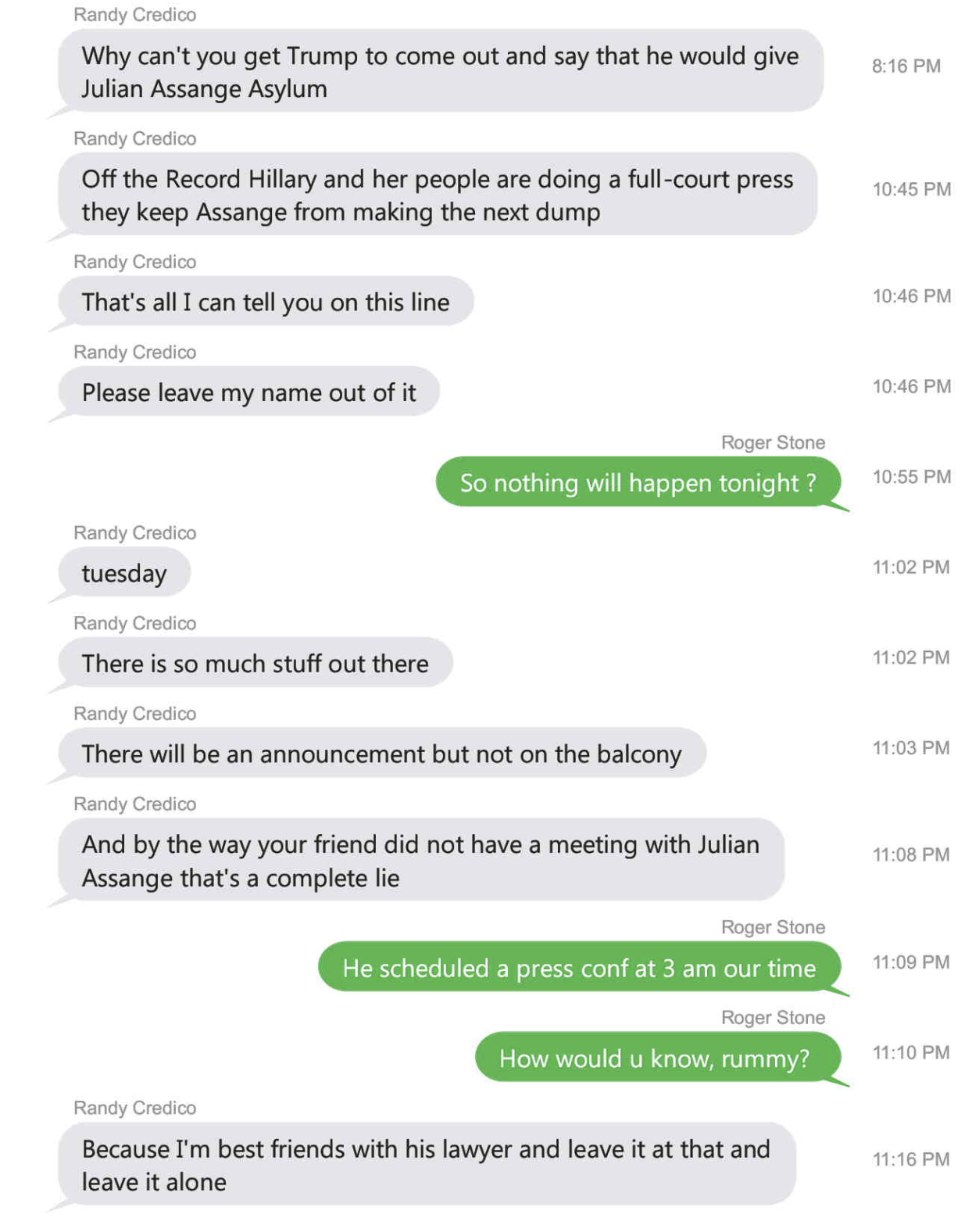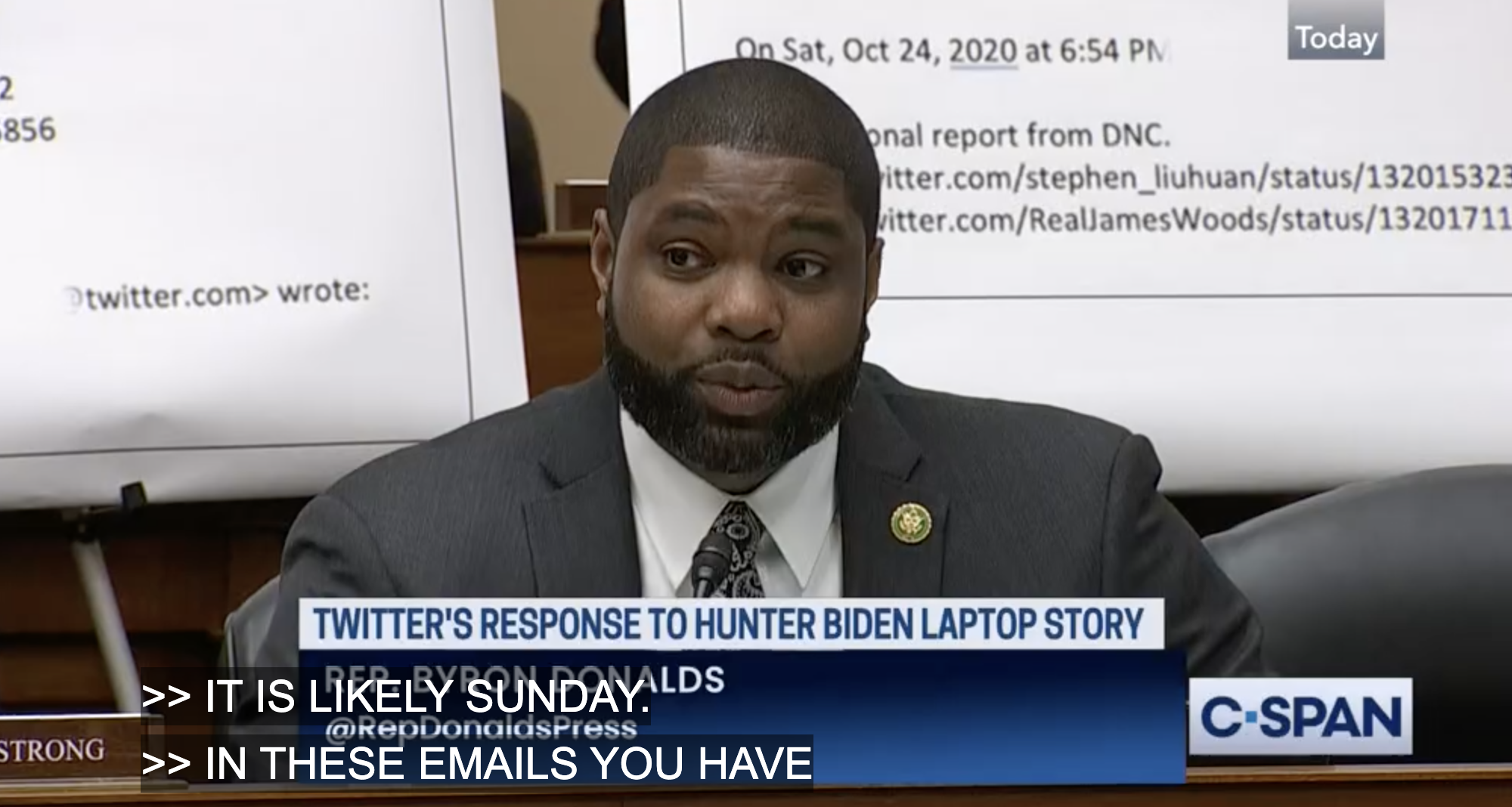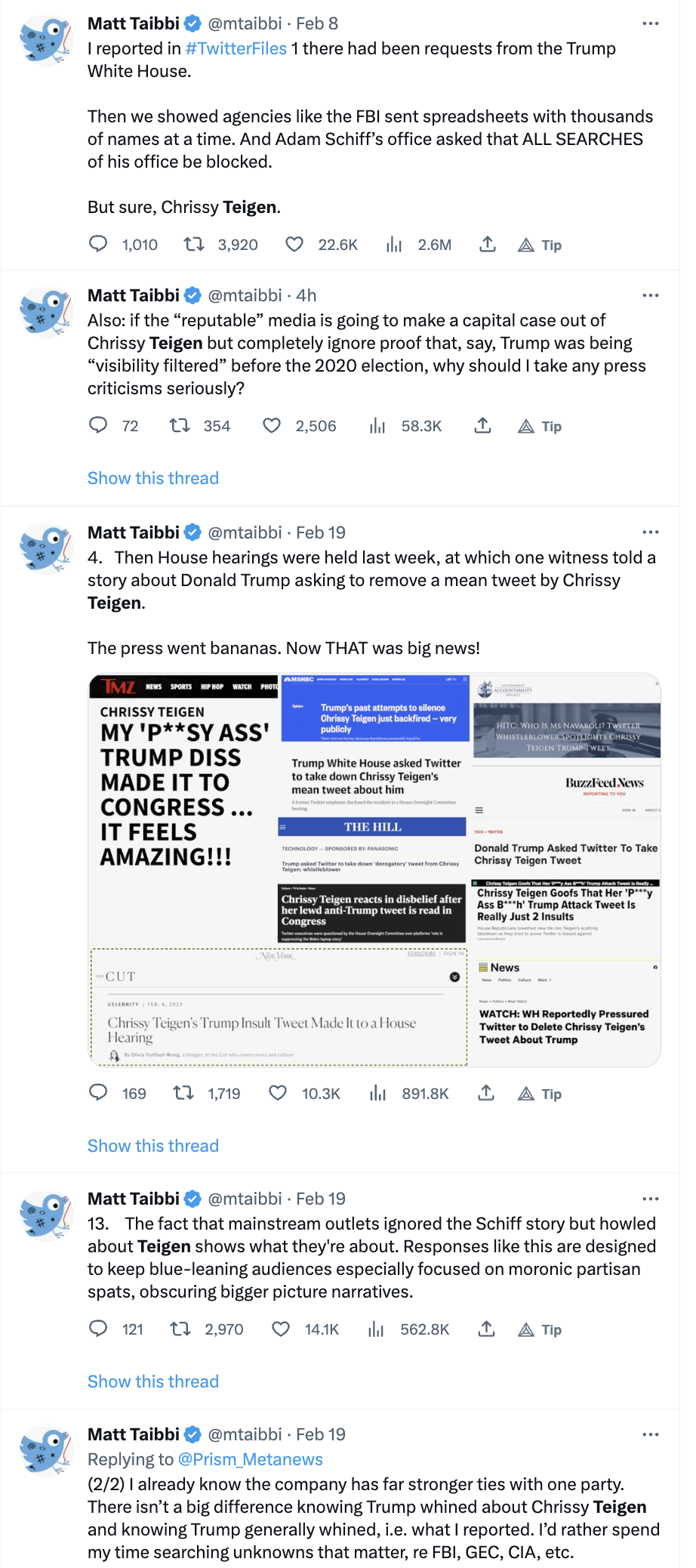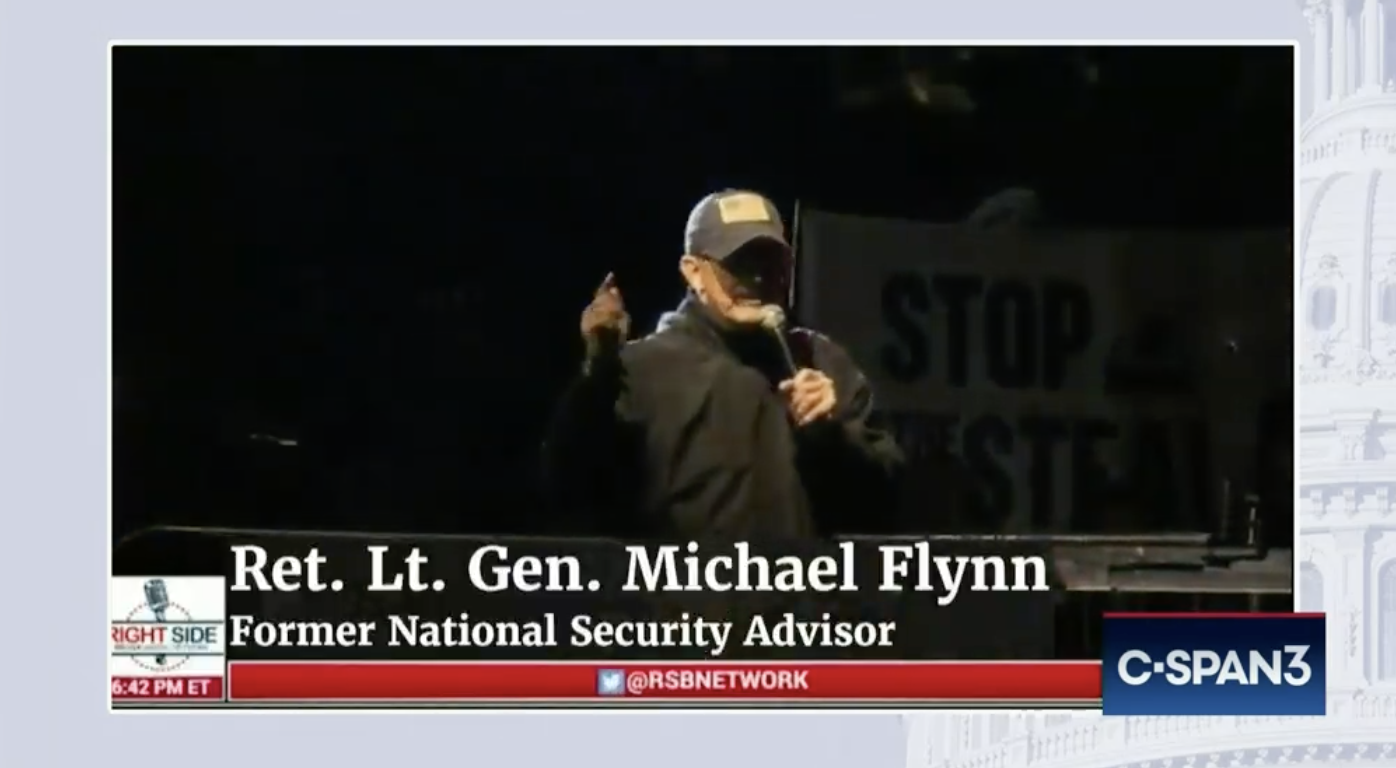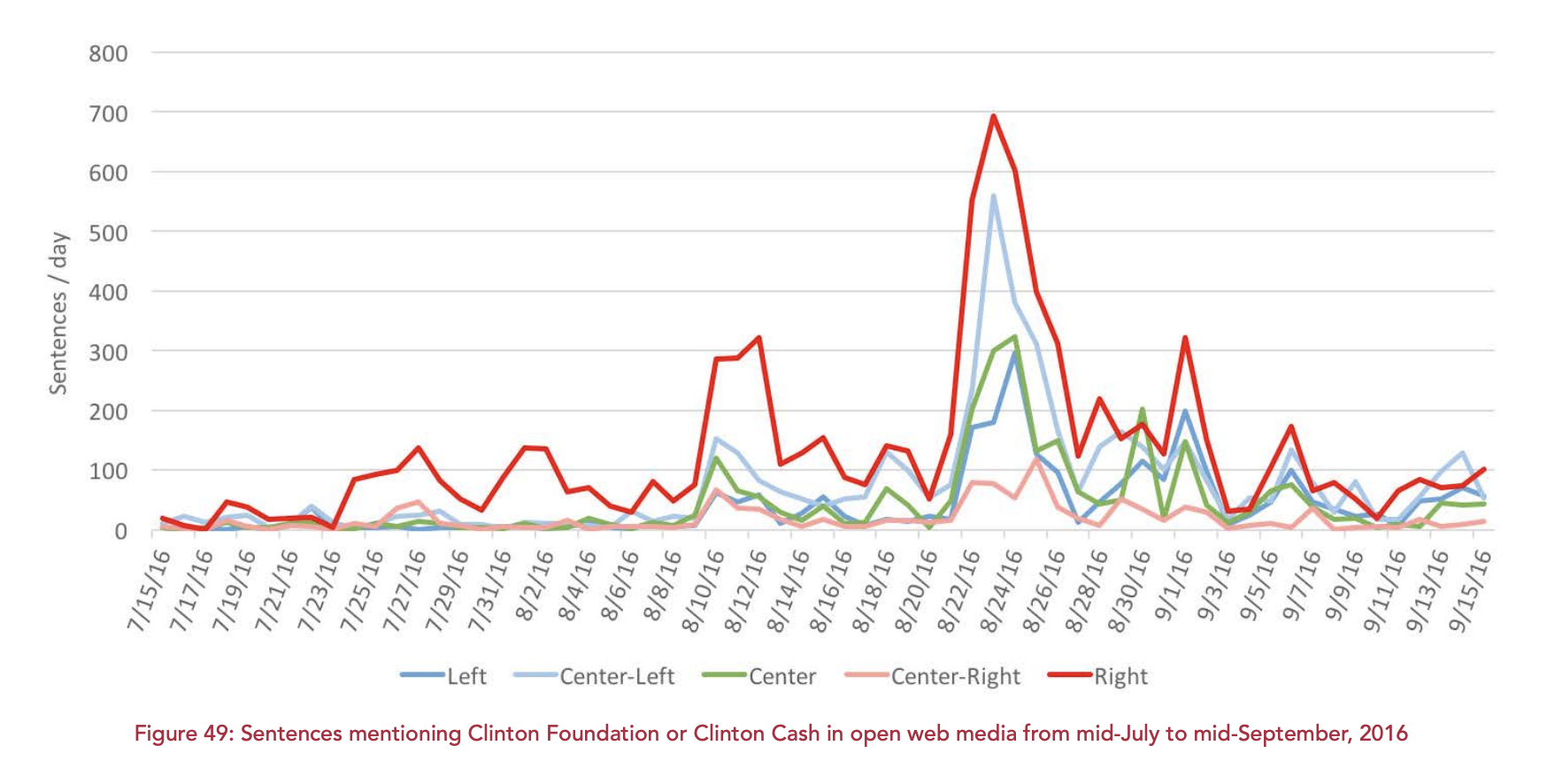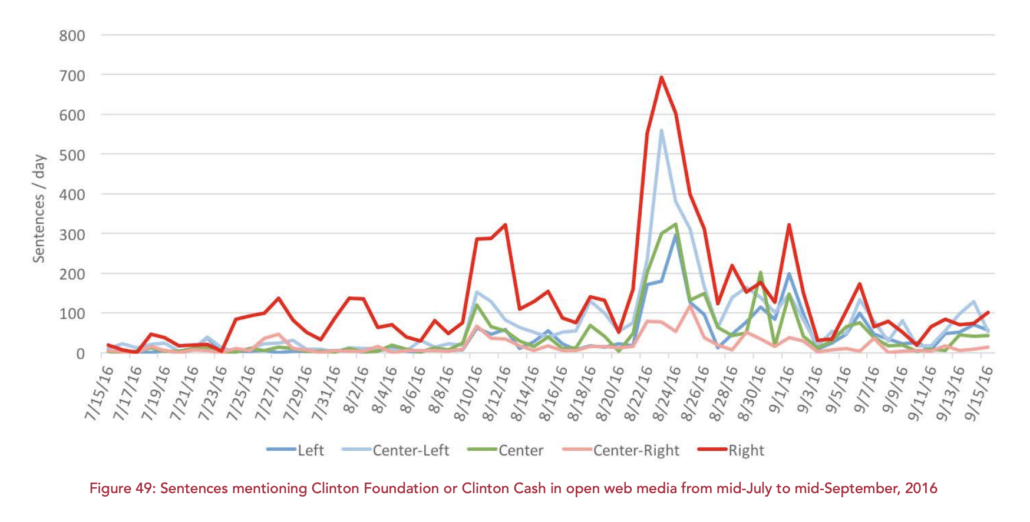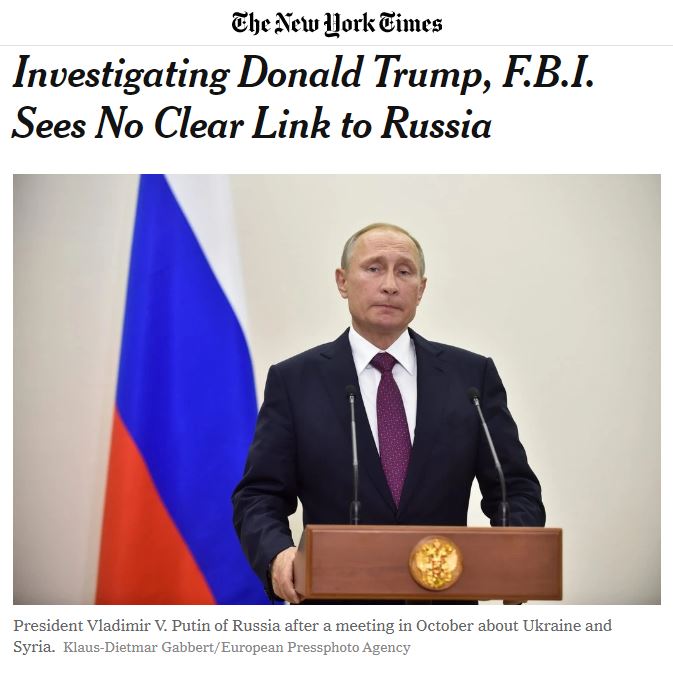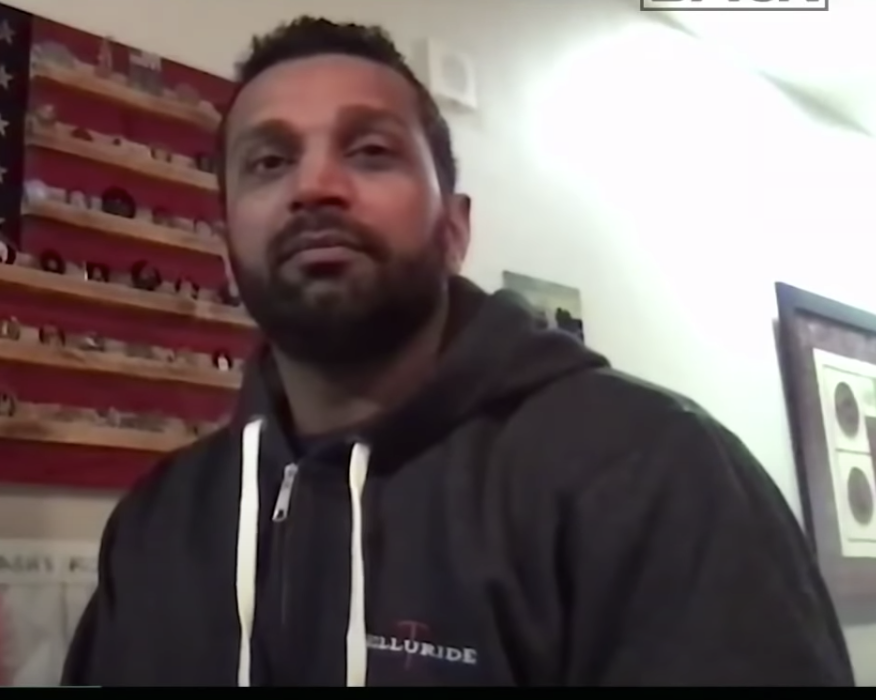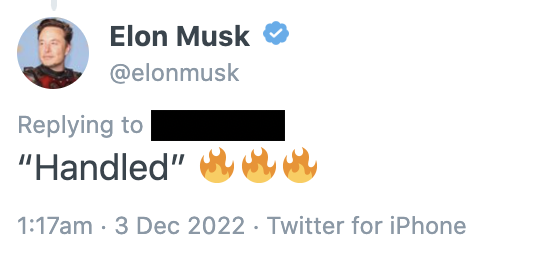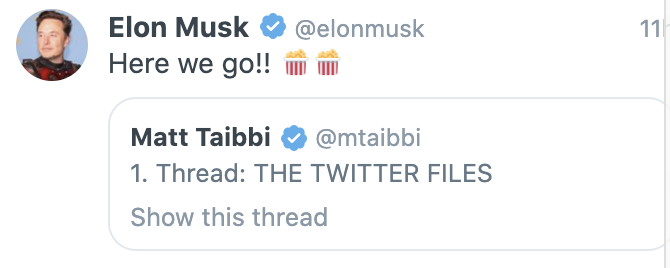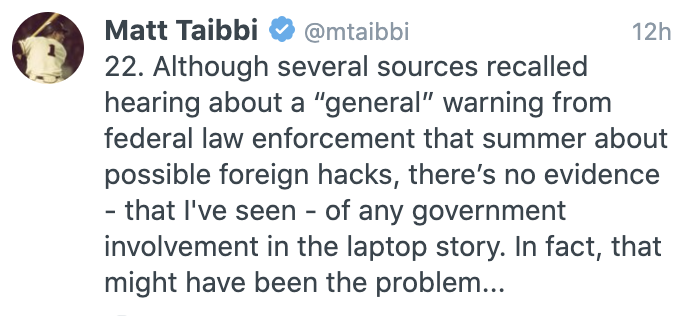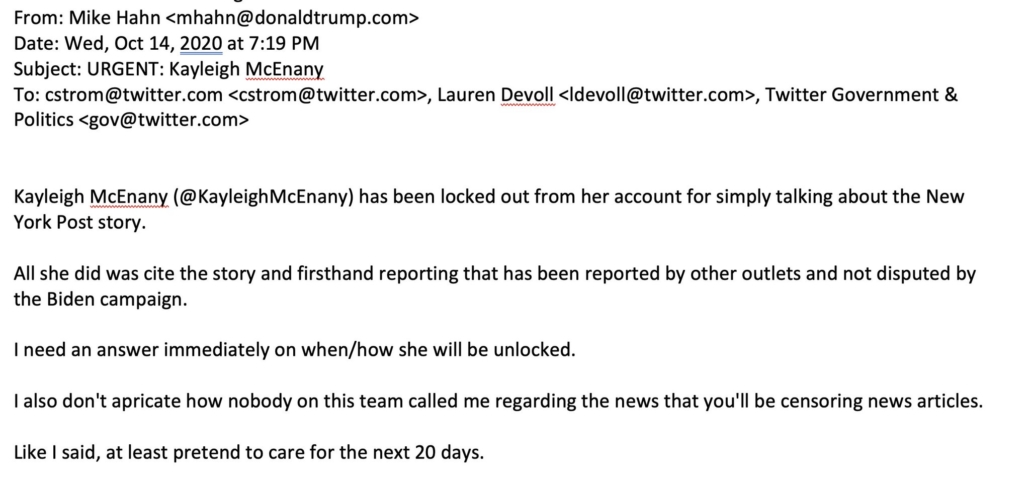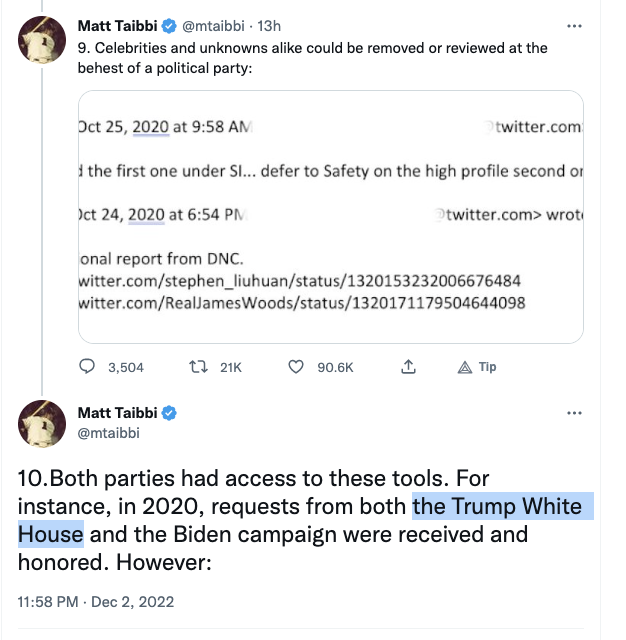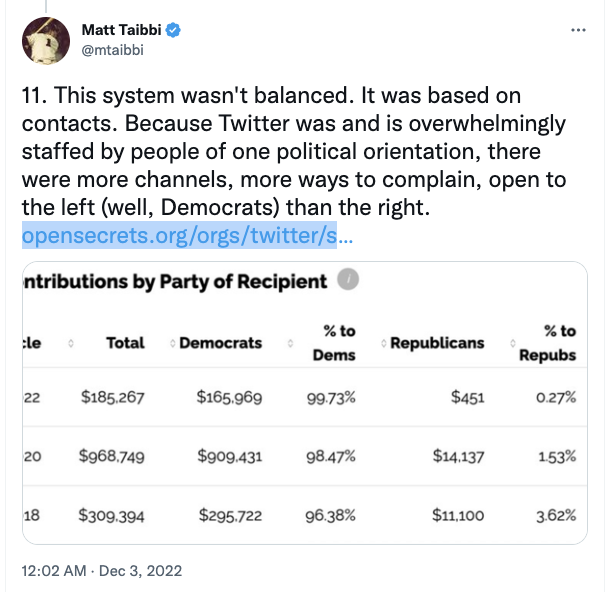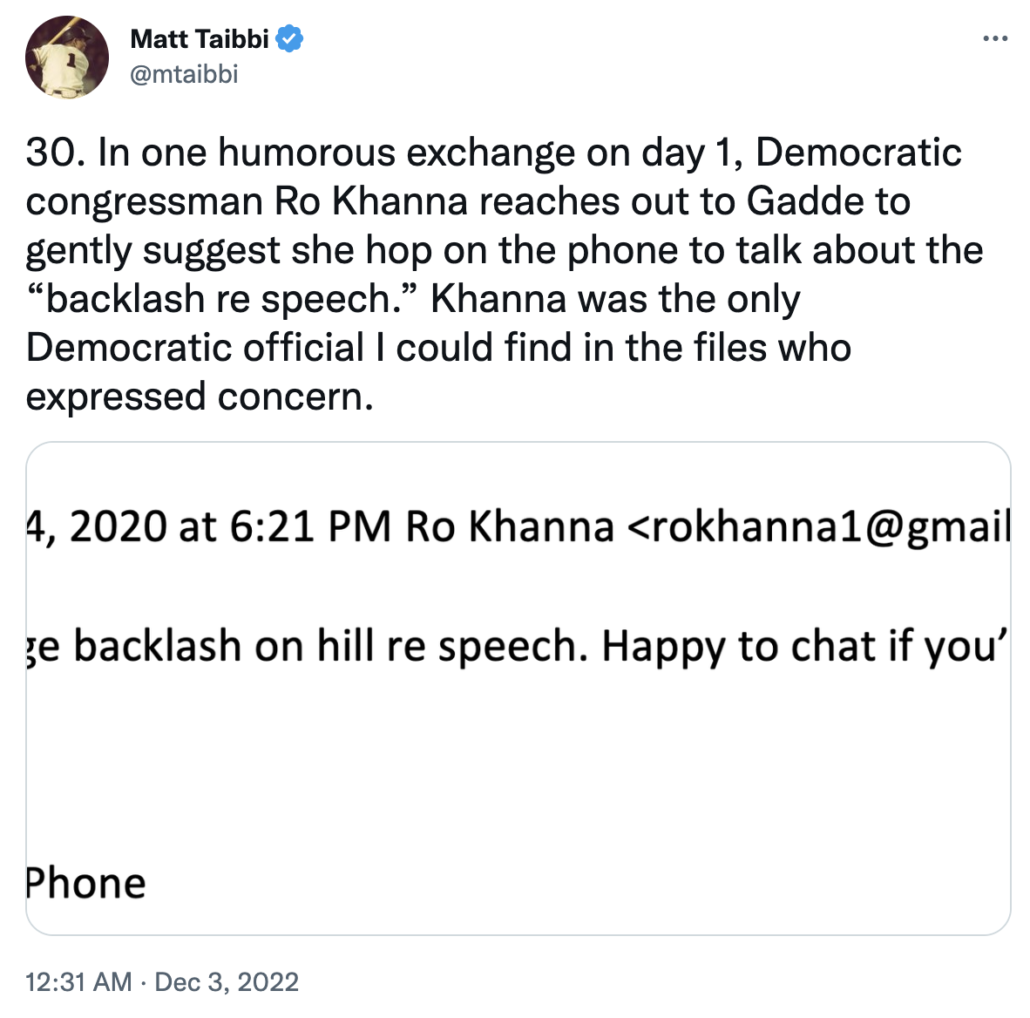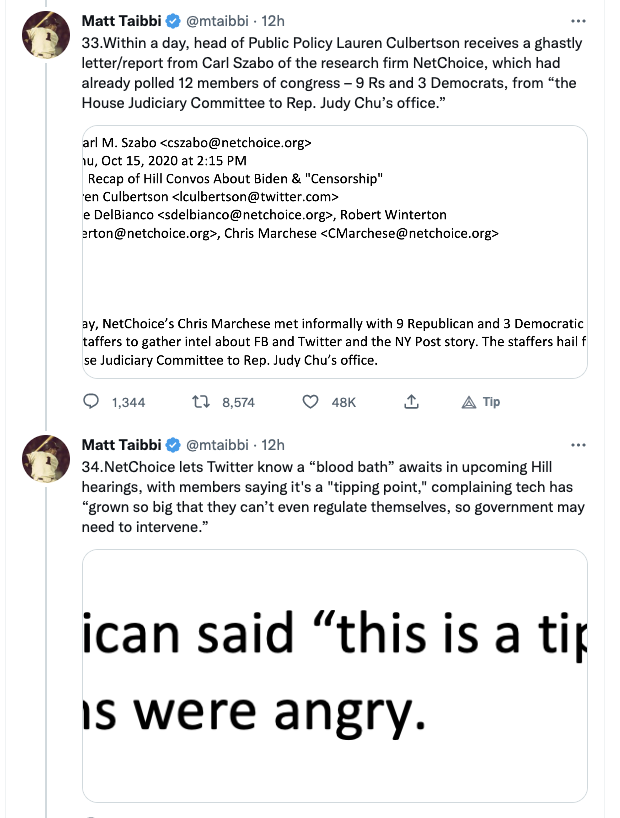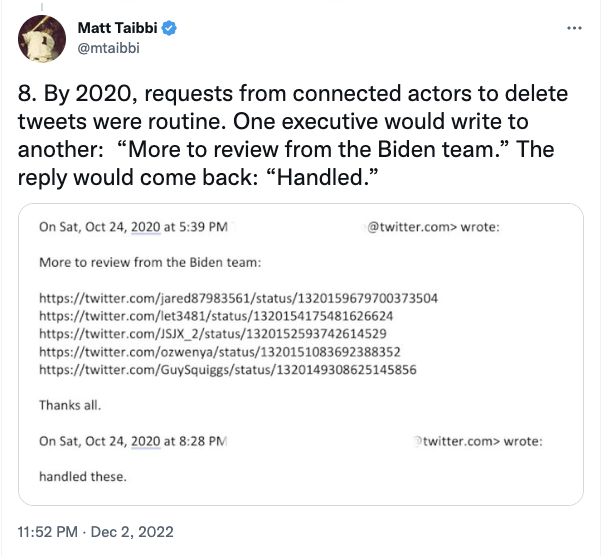In Part One of this series, I noted that Jeff Gerth couldn’t make it through his first sentence without making an error (two errors, if you’re a hard grader). In Part Three, I noted that the fact set Gerth draws on is not the Mueller investigation itself or even the underlying Russian hack-and-leak campaign, but the investigations into that investigation.
That’s how Gerth came to rely on a Russian intelligence report of uncertain reliability to make claims about Hillary Clinton’s motives without actually disclosing he was doing it.
Gerth’s reliance on people like Lindsey Graham and Sidney Powell and John Durham and a host of angry men who post highlighted screen caps on Twitter is a problem, because they’re not reliable. They’re the obvious source of many of his outright errors.
Gerth falsely claimed the DOJ IG Report vindicated Devin Nunes’ memo – but he didn’t check that (I did). He applauded retractions based off John Durham claims that couldn’t withstand the scrutiny of a jury. At least twice, he falsely claimed that investigations – the SSCI investigation’s findings about Konstantin Kilimnik, Mueller’s investigations about Prigozhin’s ties to the Russian government – showed no evidence rather than that much of it remains classified.
These are just a few of a host of smaller errors that would have been caught in any robust fact check.
Gerth invents exculpatory evidence Bill Barr says doesn’t exist
Some of his bigger errors, though, are especially revealing.
Of particular interest, given how Gerth ignores much of NYT and (especially) WaPo reporting about Mike Flynn, he misrepresents what happened with Trump’s former National Security Adviser. In Part Four of his piece, Gerth accurately describes DOJ’s claimed reason for reversing the prosecution of Flynn.
In May 2020, the Justice Department dropped the case against Flynn for lying to the FBI after a review by Jensen, the US Attorney in St. Louis. The department cited the FBI’s “frail and shifting justifications for its ongoing probe of Mr. Flynn” and said that the FBI interview of Flynn was “conducted without any legitimate investigative basis.”
In making fact claims about the Flynn investigation, Gerth doesn’t describe how obviously false this claim was. He doesn’t meet his own standard of referring to competing sides of an issue – particularly egregious given how radically DOJ’s own position changed between January and May.
But at least he accurately reported what DOJ claimed.
In Part Three, however, Gerth falsely claims that DOJ found “exculpatory” evidence, which Gerth surely knows has a legal meaning.
Flynn later tried to withdraw his plea after a Justice Department review found exculpatory evidence, including the fact that the lead agent on his case wanted to shut it down in early January but was overruled by higher-ups. The Justice Department then moved to have the charges dismissed, but a federal judge wanted to know more, so Flynn was pardoned by Trump.
[snip]
Other FBI documents, released in 2020, reflect the same assessment: the inquiry into possible ties between the campaign and Russia, according to one of the agents involved in the case, “seemed to be winding down” then. [my emphasis]
DOJ found no exculpatory evidence; if they had, it would have amounted to a Brady violation. Long before DOJ reversed course on the Flynn prosecution, it had argued that Flynn was not entitled to much of the evidence Bill Barr subsequently made available. In any case, Judge Emmet Sullivan, the judge who, since presiding over the Ted Stevens case, has adopted a particularly expansive view of Brady material, wrote a meticulous, 92-page opinion, ruling that none of that was Brady material. Jocelyn Ballantine, the AUSA stuck trying to reverse course on claims she had previously made to the court, described that DOJ’s reversal on Flynn was discretionary.
While those documents, along with other recently available information, see, e.g., Doc. 198-6, are relevant to the government’s discretionary decision to dismiss this case, the government’s motion is not based on defendant Flynn’s broad allegations of prosecutorial misconduct. Flynn’s allegations are unfounded and provide no basis for impugning the prosecutors from the D.C. United States Attorney’s Office.
Barr repeated that assessment in testimony to the House Judiciary Committee – there was no Brady violation.
Mr. Collins: (01:17:42)
Well, there’s another part of this as well that concerns what has been given to the courts and in the interviews, and that is that the facts were not disclosed to Flynn prior to the interview. That seems like a Brady violation, to me. Do you believe that there’s a Brady violation there in this case? [crosstalk 01:17:56]
Wiliam Barr: (01:17:56)
No, there wasn’t a Brady violation there, but I think what the council concluded was that the only purpose of the interview, the only purpose was to try to catch him in saying something that they could then say was a lie.
The only one who said there was exculpatory information was Sidney Powell, the same person who would go on to claim that “no reasonable person” would believe her election fraud claims were statements of fact. That’s the standard CJR adopted in this series, the Sidney Powell standard.
And when Sullivan issued a final ruling in the case – stating that Flynn’s pardon did not render him innocent – Sullivan noted that “the government had been aware of much of this evidence since early on in the case,” meaning it would be covered by his earlier Brady opinion (indeed, almost all of the “new” documents were specifically addressed in his earlier Brady opinion).
Along with his false claim about exculpatory information, Gerth’s relies on an unusual interview of case agent Bill Barnett (the bolded language above; Gerth neither names nor links the interview), which is particularly problematic. That’s true, first of all, because in the interview, Barnett suggests (improbably) he did not understand the counterintelligence side of the investigation (a point Jim Comey made in congressional testimony). His claims about the evidence conflict with known details. Even so, his interview shows that he believed that Flynn lied in his interview with the FBI, contradicting a key false claim made by “Russiagate” purveyors talking about Flynn’s case. Worse, from a legal perspective, when DOJ submitted his memo to the docket, they redacted AUSA Brandon Van Grack’s name in the interview report, which had the effect of hiding from Judge Sullivan material information – that Barnett had no complaints with Van Grack’s performance and that Van Grack made sure Barnett’s favorable views about Trump and KT McFarland were aired in prosecutorial decisions. That is, the memo actually proves that DOJ was trying to hide that there was no exculpatory information, not that there was any.
To sustain his false claims about Flynn, then, Gerth does the same thing he did with his purported review of NYT and WaPo reporting: rely on a “Russiagate” narrative, rather than the actual facts.
Gerth plays “gotcha” with thin evidence before the evidence is collected
Gerth’s errors about the investigation get far weirder in a series of instances where Gerth scolds the press for not covering statements – either released after some delay or spoken retrospectively – to claim there was no substance to the investigation.
WaPo only included James Clapper’s statement that, by the end of his tenure, the intelligence community had found no evidence of “collusion” at the end of a story otherwise focused on his denial that Trump himself had been targeted under FISA, Gerth complains, “while the Times ignored it” in their story. But, as Clapper noted himself in the interview in question, that reflected the investigation as it existed on January 20, 2017, over forty days earlier. “This could have unfolded or become available in the time since I left the government.” Clapper was right: In the interim period, Flynn had lied to the FBI about his calls with Sergey Kislyak during the transition (which, again, was covered in stories that Gerth omitted from his review of NYT and WaPo reporting) and Papadopoulos had confirmed he got advance notice of the Russian interference, while lying about the timing of it. This is a favorite “Russiagate” move, but it’s just stupid, demanding anyone measure the facts of an investigation by what it used to look like several months in the past.
Gerth also complains that the NYT “omitted” any mention of a text Pete Strzok sent Lisa Page on May 19, 2017 after it was publicly released on January 23, 2018. In the text, Strzok explains that he might not join the Mueller team because “my gut sense and concern there’s no there there.” Gerth suggests reporting it, eight months after the fact, “might have helped readers better understand why Mueller failed to bring any criminal charges involving collusion [sic] or conspiracy with Russia.”
Yet the disclosure in no way substantiates what Gerth fancies it does – because (as other documents he relies on show, as well as a great deal of public documentation about the investigation he does not mention) – with the very notable exception of the FISA warrants targeting Carter Page, the investigation had barely begun to obtain warrants to collect evidence yet in May 2017. Indeed, Strzok’s is one of several comments that Gerth seizes on that reveal the former FBI agent didn’t have it in for Trump and instead repeatedly took steps to protect Trump and Flynn’s interests. But Gerth never complains that the press didn’t cover that aspect of the leaked texts and declassified investigative records. As noted, Gerth opines that, “One traditional journalistic standard that wasn’t always followed in the Trump-Russia coverage is the need to report facts that run counter to the prevailing narrative.” The implications of the investigative steps Strzok actually took in the Russian investigation are clearly an example, but not one Gerth has any interest in.
A particularly bizarre example of this is when Gerth relies on a comment that Rod Rosenstein made, in 2020, about the state of the investigation when he approved a memo scoping the investigation on August 2, 2017. “By August, the collusion [sic] investigation had not panned out, according to 2020 testimony by Rod Rosenstein, the deputy attorney general who oversaw Mueller,” Gerth claims.
He appears to base that claim on this exchange with Lindsey Graham on June 3, 2020:
Lindsey Graham: (34:20) I’m not arguing with you about assigning it to Mueller. I’m saying, was there a legitimate reason to believe that any of the people named in this letter were actively working with the Russians in August, 2017?
Rod Rosenstein: (34:34) In August, 2017?
Lindsey Graham: (34:36) That’s when you signed the memo.
Rod Rosenstein: (34:38) My understanding, Senator, was that there was reasonable suspicion.
Lindsey Graham: (34:42) What is it? What was it?
Rod Rosenstein: (34:44) Now, again, Senator, the investigation has concluded and these people were not conspiring with the Russians, the information available at the time included-
Lindsey Graham: (34:55) Well, why do we have the Mueller investigation at all, if we had concluded they working with the Russians?
Rod Rosenstein: (35:00) I don’t believe we had concluded it at that time.
Lindsey Graham: (35:02) I am saying in January the 4th, 2017, the FBI had discounted Flynn, there was no evidence that Carter Page worked with the Russians, the dossier was a bunch of garbage and Papadopoulos is all over the place, not knowing he’s being recorded, denying working with the Russians, nobody’s ever been prosecuted for working with the Russians. The point is the whole concept that the campaign was colluding with the Russians, there was no there there in August, 2017. Do you agree with that general statement or not?
Rod Rosenstein: (35:39) I agree with that general statement. [my emphasis]
Gerth’s apparent citation of this exchange is telling. The hearing itself was part of a concerted effort by a Trump ally — relying on people like Bill Barnett — to muddle the actual results of the Mueller investigation. Gerth makes much of Mueller’s “painful” delivery during the Special Counsel’s May 2019 congressional testimony, but in this Senate hearing, Rosenstein – who was struggling to answer why he authorized the most problematic FISA application targeting Carter Page – proved easily bullied. Sure, he did “agree with [Lindsey Graham’s] general statement” that “there was no there there in August, 2017” when Rosenstein had written a new scope statement for the investigation. But Rosenstein said that just 61 seconds after he noted that he understood Mueller to have “reasonable suspicion” that Trump’s associates were working with Russia.
And as Gerth and Graham are both supposed to understand, the [Acting] Attorney General supervising a Special Counsel investigation is not involved in the day-to-day steps of it. Rosenstein’s answers make it clear he either didn’t remember, didn’t know, or didn’t want to talk about those details.
In fact, the public record shows, Mueller had more than reasonable suspicion that Trump’s aides had inappropriate contacts with Russians or others involved in the interference operation.
Just days earlier, on July 28, 2017, DOJ had already established probable cause to arrest George Papadopoulos for false statements and obstructing the investigation. His FBI interviews in the days after August 2 would go to the core questions of the campaign’s knowledge and encouragement of Russia’s interference. On August 11, Papadopoulos described, but then backed off certainty about, a memory of Sam Clovis getting upset when Papadopoulos told Clovis “they,” the Russians, have Hillary’s emails. On September 19, Papadopoulos professed to be unable to explain what his own notes planning a September 2016 meeting in London with the “Office of Putin” meant.
The investigation into Paul Manafort, too, was only beginning to take steps that would reveal suspect ties to Russia. Also on July 28, for example, DOJ obtained the first known warrant including conspiracy among the charges under investigation, and the first known warrant listing the June 9 meeting within the scope of the investigation. On August 17, DOJ would show probable cause to obtain emails from Manafort’s business involving Manafort, Gates, and Konstantin Kilimnik that would (among other things) show damning messages sent between Manafort and Kilimnik using the foldering technique, likely including Manafort’s sustained involvement in a plan to carve up Ukraine that started on August 2, 2016 (which Gerth omits from his description of that meeting).
Similarly, Mueller was still collecting evidence explaining why Flynn might have lied about his calls with Sergey Kislyak. On August 25, Mueller obtained a probable cause warrant to access devices owned by the GSA showing that Flynn had coordinated his calls with other transition officials, including those with Trump at Mar-a-Lago, when he called Kislyak to undermine Obama’s sanctions against Russia.
Plus, Mueller was just beginning to investigate at least two Trump associates that Rosenstein would include in an expanded scope in October 2017. On July 18, Mueller would obtain a probable cause warrant that built off Suspicious Activity Reports submitted to Treasury. That first known warrant targeting Michael Cohen never mentioned the long-debunked allegations about Cohen in the Steele dossier. Instead, the warrant affidavit would cite five deposits in the first five months of 2017 from Viktor Vekselberg’s Renova Group, totaling over $400K, $300K in payments from Korean Aerospace Industries, and almost $200K from Novartis, all of which conflicted with Cohen’s claim that the bank account in question would focus on domestic clients. On August 1, Mueller would obtain a probable cause warrant for Cohen’s Trump Organization emails from Microsoft. Mueller did so using a loophole that Microsoft would sue to close shortly afterwards, a move which likely stymied the investigation into a suspected $10 million donation to Trump, via an Egyptian bank, that kept him in the race in September 2016. That warrant for Trump Organization emails likely obtained Cohen’s January 2016 contact with the Kremlin – the one not turned over, to Congress at least, in response to a subpoena – a contact that Cohen would lie to Congress about four week later.
On August 7, Mueller used a probable cause warrant to obtain Roger Stone’s Twitter content, which revealed a mid-October 2016 exchange with WikiLeaks that disproved the rat-fucker’s public claims that he had never communicated with WikiLeaks during the campaign (a fact that Gerth gets wrong in the less than 1% of his series he dedicates to Stone). It also revealed that the day after the election, WikiLeaks assured Stone via DM that “we are now more free to communicate.” Those communications would, in one week (the subsequent investigation showed), turn into pardon discussions, which provides important background to the June 2017 Twitter DMs Stone had with Julian Assange, obtained with that August warrant, about “doing everything possible to address [Assange’s] issues at the highest level of Government.”
Gerth’s reliance on Rosenstein, at best, ignores the context of the former Deputy Attorney General’s quivering in the face of his own exposure in the errors in the Carter Page applications. It ignores Rosenstein’s statement, 61 seconds earlier, about reasonable suspicion. More importantly, it relies on a witness who wouldn’t know what investigators had discovered and by when, all the while remaining blissfully ignorant of (or, worse, suppressing) publicly available details that reveal the actual state of the investigation in August 2017.
Based on such a shoddy reporting approach, Gerth calls all these investigative discoveries – details about plans for a meeting with Putin’s office in September 2016, foldered emails about carving up Ukraine, coordination with Mar-a-Lago on Flynn’s calls about sanctions with Sergey Kislyak, $400K in suspicious payments from a Russian oligarch, and proof that Stone was lying about contact with WikiLeaks – “no there, there.”
Gerth insists that journalists should disclose the known details about the investigation – such as that Strzok didn’t think there would be anything before Mueller started obtaining warrants to check — but rather than holding himself to that standard, he instead makes provably false statements about what investigators knew, and could have known, when.
When asked about both the Flynn and the Rosenstein claims, twice, CJR did not respond. “[T]he vast majority of items” I raised “are editorial notes from you, as in ways you would have written the piece differently,” Pope said in response to my list of questions, “rather than issues of fact that need to be addressed by CJR.”
Sweeping misstatements about trolls
Gerth’s legal misrepresentations are perhaps most telling in his discussion of the case against Russian oligarch Yevgeniy Prigozhin, twelve human trolls who worked for Internet Research Agency, the IRA itself, and two shell companies Prigozhin allegedly used to fund the IRA.
This is going to get weedy, but it’s important because it’s an instance where Gerth simply adopts the false claims of another “Russiagate” propagandist as his own.
Gerth makes two claims: That the judge handling the case “rebuked” “the Mueller [R]eport” for claiming the “IRA” was part of a “sweeping” Russian government effort when (Gerth claimed) prosecutors weren’t prepared to prove that tie. And, he claims, “one criminal case” was dropped by DOJ.
The Mueller report’s implication that the IRA was part of a “sweeping” Russian government meddling campaign in 2016 was later rebuked by a federal Judge handling an IRA-related case. The indictment of the IRA, the judge found, alleged “only private conduct by private actors” and “does not link the [IRA] to the Russian government.” The prosecutors made clear they were not prepared to show that the IRA efforts were a government operation. Mueller’s report does refer to “ties” between Putin and the owner of the IRA—he is sometimes referred to as “Putin’s Cook”—and the fact that “the two have appeared together in public photographs.” Mueller’s source for that was an article in the Times.
[snip]
(One criminal case involving Russian trolling that was prosecuted was dropped by the Justice Department in March 2020. The Times, in its story about the decision, only quoted the prosecutor, while the Wall Street Journal and Washington Post also included quotes from the Russian company’s American lawyer.)
Before I lay out the many errors here, let me address Gerth’s complaint that the NYT quoted only prosecutors in their stories about DOJ’s decision to drop charges against Concord, whereas the WSJ and WaPo “include[] quotes from the Russian company’s American lawyer.” He doesn’t mention that NYT quoted a Twitter account boasting of leaking Mueller’s materials, one proximate reason DOJ dropped the case. But the entire complaint underscores Gerth’s fundamental misrepresentation of this issue: The dispute in question was a dispute about prejudicial pretrial statements, not about what prosecutors planned to prove in court. After Judge Dabney Friedrich issued her rebuke, neither side was supposed to be giving quotes to journalists.
And because DOJ didn’t dismiss an entire criminal case, DOJ remained gagged under Judge Friedrich’s order. DOJ dismissed only the charges against the defendants in question, which Gerth describes as the “IRA” (Internet Research Agency) five times in one paragraph.
But Gerth got the defendant wrong. Here’s the passage of the judge’s order Gerth claims to be citing.
But the indictment, which alleges that private Russian entities and individuals conducted an “information warfare” campaign designed to sow discord among U.S. voters, Indictment ¶ 10, does not link the defendants to the Russian government. Save for a single allegation that Concord and Concord Catering had several “government contracts” (with no further elaboration), id. ¶ 11, the indictment alleges only private conduct by private actors. [my emphasis]
“The defendants” here were Concord Management and Consulting, the shell companies Prigozhin allegedly used to fund the IRA, the same defendants against which DOJ dropped charges. (Friedrich refers to IRA as Concord’s “co-defendant” when she discusses them.) The difference matters because – as even that passage makes clear – there was no question about the contracts that Concord had with the Russian government.
DOJ dismissed the charges against Concord because it was acting as a true shell company, using its flexibility as a corporate person to show up to contest the charges and obtain sensitive discovery, while dodging parts of the protective order and any possibility it would ever be arrested. I laid out DOJ’s decision to drop the charges, rebutting false claims from both right and left, in this post. Gerth must know that the decision only pertained to two corporate shell defendants. The WSJ story he cites, for example, makes that clear in the headline: “Judge Dismisses Part of Robert Mueller’s Case Against Russian Firm.” The NYT version clarified the dismissal involved just “two Russian shell companies.”
And as for Friedrich’s rebuke, as I noted, it was about pretrial prejudice, Concord’s ability to get a fair trial, not about what prosecutors planned to prove at trial. Gerth appears to have made up the claim that prosecutors “made clear they were not prepared to show that the IRA [sic] efforts were a government operation.” On the contrary, prosecutor Jonathan Kravis explained in a hearing on Concord’s motion that they had not yet decided whether they would present it at trial.
THE COURT: And is that something that the government plans to introduce at trial in this case?
KRAVIS: I’m not certain of the answer to that question at this point.
Given the charges, they didn’t need to prove that Concord was working with the Russian government. The single conspiracy count against Concord didn’t require proving Prigozhin’s substantial ties to the Russian government. It required showing only that members of the conspiracy deliberately thwarted FEC and DOJ’s ability to enforce campaign finance and FARA laws, both of which only require a tie to a foreign principal, not a foreign government.
Similarly, Gerth falsely insinuates that Mueller didn’t have evidence of such ties by suggesting the only evidence in the report was a reference to a NYT article. As he did with the SSCI case laying out reasons it judged Kilimnik to be a spy, Gerth is here referring to a two page, almost entirely redacted section, and insinuating that a bunch of redacted evidence is the same as no evidence, just a reference to the NYT. A sentence unsealed after this dispute shows that this passage relied, in part, on details of Prigozhin’s ties to the Russian military.
Finally, Gerth misrepresents both the substance of the rebuke and its primary target. Concord’s complaint about prejudicial language (both the alleged tie to Russia and outright claims it was illegal) focused first and foremost on Bill Barr’s language, and only secondarily on the Mueller Report. While Friedrich’s order rebuking the government did cite language in the Mueller Report, she deemed that language a violation in conjunction with Barr’s far more definitive tie between Russia and the corporate defendants, particularly made in Senate testimony.
Similarly, the Attorney General drew a link between the Russian government and this case during a press conference in which he stated that “[t]he Special Counsel’s report outlines two main efforts by the Russian government to influence the 2016 election.” Press Conference Tr. (emphasis added). The “[f]irst” involved “efforts by the Internet Research Agency, a Russian company with close ties to the Russian government, to sow social discord among American voters through disinformation and social media operations.” Id. The “[s]econd” involved “efforts by Russian military officials associated with the GRU,” a Russian intelligence agency, to hack and leak private documents and emails from the Democratic Party and the Clinton Campaign. Id. The Attorney General further stated the Report’s “bottom line”: “After nearly two years of investigation, thousands of subpoenas, and hundreds of warrants and witness interviews, the Special Counsel confirmed that the Russian government sponsored efforts to illegally interfere with the 2016 presidential election but did not find that the Trump campaign or other Americans colluded in those schemes.” Id. (emphases added). In context, it is clear that one of these “efforts” or “schemes” attributed to the Russian government was the information warfare campaign alleged in the indictment. Id. Thus, the Attorney General “confirmed” what the indictment does not allege—that Concord’s and its co-defendants’ activities were “sponsored” by the “Russian government” and part of a two-pronged attack on our nation’s democratic institutions. Id. This bottom-line conclusion was highlighted in multiple press articles following the Report’s release.
In fact, Friedrich pointed to Mueller’s closing press conference on May 29 as proof of the care with which DOJ was trying to avoid such prejudice.
In delivering his remarks, the Special Counsel carefully distinguished between the efforts by “Russian intelligence officers who were part of the Russian military” and the efforts detailed “in a separate indictment” by “a private Russian entity engaged in a social media operation where Russian citizens posed as Americans in order to interfere in the election.” Special Counsel Statement Tr. (emphases added). He also repeatedly referred to the activities described in the Report as “allegations” and made clear that his Office was “not commenting on the guilt or innocence of any specific defendant.” Id. The Special Counsel added that the defendants were “presumed innocent unless and until proven guilty in court.”
As to Gerth’s insinuation that Friedrich was rebuking Mueller for including “IRA” in his observation that, “The Russian government interfered in the 2016 presidential election in sweeping and systematic fashion,” she did not include the “sweeping” comment quoted by Gerth. While Concord cited the “sweeping” language in its initial motion, it dropped it in its reply. The reference didn’t come up in the hearing on the matter. And Friedrich’s order did not mention the “sweeping and systematic” claim either, which in the report was tied to the hack-and-leak campaign. So not only wasn’t that claim rebuked, but by yoking that claim to IRA, Gerth is doing precisely what Concord complained about, applying language that pertained to other parts of Russia’s operation to Prigozhin’s corporations. Gerth is himself engaged in the kind of sloppy journalism that Concord complained about.
Virtually everything Gerth said in his comments about “IRA” was wrong in one way or another.
The sloppiness of this section is important for another reason.
As far as I’m aware, the claims were first made by Aaron Maté in a piece listing questions he wanted asked in Mueller’s congressional testimony.
Why did you suggest that juvenile clickbait from a Russian troll farm was part of a “sweeping and systematic” Russian government interference effort?
The Mueller report begins by declaring that “[t]he Russian government interfered in the 2016 presidential election in sweeping and systematic fashion.” A few paragraphs later, Mueller tells us that Russian interference occurred “principally through two operations.” The first of these operations was “a social media campaign that favored presidential candidate Donald J. Trump and disparaged presidential candidate Hillary Clinton,” carried out by a Russian troll farm known as the Internet Research Agency (IRA).
The inference here is that the IRA was a part of the Russian government’s “sweeping and systematic” interference campaign. Yet Mueller’s team has been forced to admit in court that this was a false insinuation. Earlier this month, a federal judge rebuked Mueller and the Justice Department for suggesting that the troll farm’s social media activities “were undertaken on behalf of, if not at the direction of, the Russian government.” US District Judge Dabney Friedrich noted that Mueller’s February 2018 indictment of the IRA “does not link the [IRA] to the Russian government” and alleges “only private conduct by private actors.” Jonathan Kravis, a senior prosecutor on the Mueller team, acknowledged that this is the case. “[T]he report itself does not state anywhere that the Russian government was behind the Internet Research Agency activity,” Kravis told the court.
Maté made the claim that “sweeping” was included in there, he made the claim (and the substitution in brackets) that this was about the IRA, Maté made up the claim that this was about evidence rather than pretrial prejudice (indeed, his first version of this, since corrected, falsely attributed Concord’s complaint that DOJ had “improperly suggested a link” between “IRA and the Kremlin” to Friedrich). Most of Gerth’s errors first appeared in Maté’s piece, and Gerth doesn’t include Maté’s one quote – Friedrich’s judgment that the Mueller Report had suggested the trolling done by Concord’s co-defendant IRA was “undertaken on behalf of … the Russian government” – where Friedrich most directly condemned the Report.
From Maté’s piece, the claims were magnified through “Russiagate” channels and invoked days later in some erroneous questioning by Tom McClintock in the Mueller appearance that Gerth invoked in word 18 of his 23,000 word series.
MCCLINTOCK: But — but you — you have left the clear impression throughout the country, through your report, that it — it was the Russian government behind the troll farms. And yet, when you’re called upon to provide actual evidence in court, you fail to do so.
MUELLER: Well, I would again dispute your characterization of what occurred in that — in that proceeding.
Gerth, who starts his 23,000-word series citing Mueller’s testimony and scolds journalists repeatedly for not presenting contrary views, doesn’t include Mueller directly disputing the claim – made by McClintock, made by Gerth, and made by Maté – that the government failed to present such evidence. Gerth has been told his claims here are false, in the Mueller testimony he made the opening gambit of his series. And yet, he repeated Maté’s errors anyway.
Maté is one of the many “Russiagate” proponents – along with Matt Taibbi, Glenn Greenwald, Paul Sperry, John Solomon, Barry Maier – of whom Gerth speaks favorably at length (curiously, he doesn’t mention Chuck Ross, who unlike the others did important, substantive reporting on the dossier). I asked Pope whether Gerth had assessed some of the erroneous reports of these “Russiagate” figures, and mentioned this misrepresentation of Friedrich’s order specifically.
Do you believe Aaron Maté’s treatment of the Concord prosecution is accurate (including his misrepresentation of an order Dabney Friedrich issued, which this piece appears to rely on)? [my emphasis]
Pope refused to address the erroneous reporting of “Russiagate” proponents that Gerth was citing approvingly. “[Y]ou ask us to comment on or defend the actions of other people and institutions, including Trump, the FBI, Erik Wemple, the Department of Justice, Glenn Greenwald, and others. Those questions should be addressed to them, not us.”
No. Since CJR adopted Maté’s errors as their own, the question was rightly addressed to Pope.
Pope’s silence about questions specifically raised about Maté, his refusal to own up to the errors Gerth borrowed from him, are particularly telling: In Duncan Campbell’s recent description of how CJR spiked a story on the Nation magazine’s credulous Russian reporting, Campbell revealed that the last edits Pope made before sending it to an interminable fact check pertained to Maté.
Pope then wanted the 6,000-word and fully edited report cut by 1,000 words, mainly to remove material about the errors in The Nation article. Among sections cut down were passages showing how, from 2014 onwards, vanden Heuvel had hired a series of pro-Russian correspondents after they had praised her husband. Among the new intake was a Russian and Syrian Government supporting broadcaster, Aaron Maté, taken on in 2017 after he had platformed Cohen on his show The Real News.
Maté became the magazine’s prolific ‘Russiagate’ correspondent. Vanden Heuvel was later to tell Maté in a broadcast in October 2020 that “Steve always valued your work… your writing for The Nation was always important to him as it is to me… I think what you do at RealClearInvestigations is factual, is bullet–, and I was reading them to Steve in the last weeks, trying to rile him up.” Maté responded: “I’m forever indebted to you and Steve.”
That is, CJR has covered for Maté in the past, and here they refuse to hold themselves accountable for adopting his errors.
The Columbia Journalism Review blew off one or another clear error – errors that came from people like Sidney Powell! – by claiming the actual facts were mere “editorial notes.”
And along the way, Gerth declared that details about plans for a meeting with Putin’s office in September 2016, foldered emails about carving up Ukraine, coordination with Mar-a-Lago on Flynn’s calls about sanctions with Sergey Kislyak, $400K in suspicious payments from a Russian oligarch, and proof that Stone was lying about contact with WikiLeaks amounted to “no there there.”
CJR claimed that it “has been examining the American media’s coverage of Trump and Russia in granular detail.” This review has shown how ridiculous that claim is. What it did, in the name of scolding other journalists while misrepresenting their work, was create the “Russiagate” narrative they defined the entire project by. They did so by skipping key events of 2016, ignoring the vast majority of the NYT and WaPo reporting they claimed to review, substituting the dossier for actual media coverage, and passing off a Russian intelligence product with no notice. To prove they found the “Russiagate” narrative they had dishonestly created, they simply parroted the work of people from their same “Russiagate” bubble, all the while ignoring vast swaths of contradictory evidence in the documentary record.
CJR invented a Russiagate narrative via omission and factual error. Then they boasted that they had found what their own journalistic failures created.
Update: A stats prof from Columbia caught Gerth making errors — or more likely, adopting others’ errors — in his key statistical claim about declining trust for media.
Links
CJR’s Error at Word 18
The Blind Spots of CJR’s “Russiagate” [sic] Narrative
Jeff Gerth’s Undisclosed Dissemination of Russian Intelligence Product
Jeff Gerth Declares No There, Where He Never Checked
“Wink:” Where Jeff Gerth’s “No There, There” in the Russian Investigation Went
My own disclosure statement
An attempted reconstruction of the articles Gerth includes in his inquiry
A list of the questions I sent to CJR
Update: Date of Papadopoulos’ claimed inability to read his own notes corrected.

